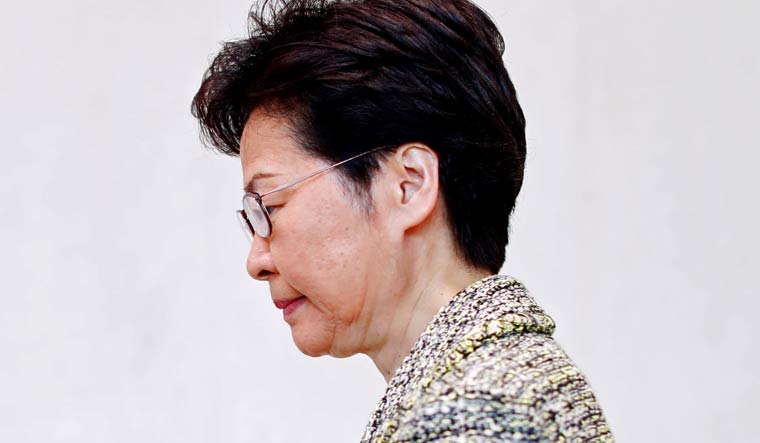In China, even as state media sought to downplay and discredit the weekend ballot that delivered a stinging rebuke to Hong Kong's pro-Beijing establishment, the city's Chief Executive Carrie Lam acknowledged Tuesday that public dissatisfaction with her government fuelled a landslide win by pro-democracy candidates in local elections. She, however, offered no new concessions to resolve months of violent protests.
The city's chief executive pledged to "improve governance" in the wake of the district council elections, which she acknowledged revealed concern over "deficiencies in the government, including unhappiness with the time taken to deal with the current unstable environment."
In legislative elections that took place on Sunday, pro-democracy candidates seized an overwhelming majority of 452 elected seats in the city's 18 district councils, bodies that have historically been firmly in the grip of a Beijing-aligned establishment.
The Chinese government on Monday downplayed Hong Kong's importance with the Finance Minister Wang Yi saying that the semi-autonomous city will always remain a part of China.
Lam, who has dismissed calls for political reform and repeatedly suggested that a silent majority supported her administration seemed humbled by the election results. The results haven't been officially announced yet.
Pro-democracy politicians are now calling upon Lam to address the movement's key demands like direct popular elections for the city's leadership and legislature, and a probe into alleged police brutality against demonstrators.
She, however, sidestepped those calls, denouncing the street violence and repeating an earlier pledge to open a dialogue on the unrest, a proposal that opponents have dismissed as too little, too late. Lam did not talk about any other demands such as withdrawal of the use of the word 'riot' while referring to protesters and unconditional release of arrested protestors with charges against them dropped either.
The unrest began among Hong Kongers about five months ago when Lam's government introduced a bill to allow extraditions to China.
The bill added fuel to growing fears that Beijing was tightening its grip on the city, unleashing broader public demands for reform. And this led to violent clashes between police and protesters.
The public support for change indicated by the election result appeared to pour cold water on repeated claims by the chief executive and China's government that the protests were the work of a violent radical fringe.
Chinese leaders have also been concerned with the situation in the city and President Xi Jinping is getting daily briefings on the same.
Lam Cheuk-ting, a lawmaker and leading figure in the Democratic Party, said that Lam's comments indicated "no reflection, no response and no resolution" for Hong Kong's ongoing crisis.
China's state media cast doubt on the vote's legitimacy, focusing on violence that marred campaigning. The Chinese government as before blamed western nations for fanning flames of the movement and stoking anti-government sentiments.
Results of the elections gave rise to speculation that Lam might be dumped by Beijing, but a Chinese foreign ministry spokesman on Monday reiterated the government's backing.


